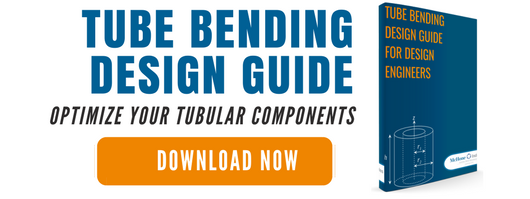 Garden tool manufacturers looking to ramp up production and increase future sales need to understand that modern consumers demand a sturdy, durable, good-looking tool that helps them accomplish the task at hand (without causing pain).
Garden tool manufacturers looking to ramp up production and increase future sales need to understand that modern consumers demand a sturdy, durable, good-looking tool that helps them accomplish the task at hand (without causing pain).
When manufacturing these tools, the choice of tubular steel can make a big difference in providing products that meet the needs of these discerning diggers. Here are some design elements to consider, helping ensure a positive gardening outcome for the end customer:
5 Design Tips for Garden Tool Manufacturers
Savvy garden supply manufacturers know that they need to follow these 5 design tips for high quality tools:
- Focus on durability
- Account for the elements
- Be mindful of heavy lifting
- Think about consumer preference (long handled design)
- Consider long-lasting finishes
Implementing these design tips is easier than you think, and may only require a few small shifts in thinking and process to optimize for the modern lawn and garden consumer.
1. Gardening Tools Need Durability
Gardeners are workers -- they’re digging holes, hitting rocks, moving dirt, and creating masterpieces. They give tools a workout and don’t want something that bends at the slightest amount of pressure.
Steel tubing can produce handles that stand up to the toughest tasks. Metal gardening tools may in especially popular in areas with rocky soil, like New England.
2. It’s Weather-y Out There
Gardening involves dealing with the elements -- and those elements present challenges for gardening tool manufacturers.
Soil can be dirt, sand, or clay. Gardeners can add components like compost, manure, fertilizer, and lime to get the perfect growing environment. Some soils, and even grass, can be very acidic. And quite often, the soil is wet.
Wood will simply rot over time. Yet with metal, your design decisions when choosing tubular steel (or aluminum) must take corrosion into consideration. Not a problem, though. Aluminum and 304 grade stainless steel have great corrosion resistance. Mild steel usually has poor resistance to corrosion unless it is coated. We prefer powder coating over paint for a variety of reasons.

3. Gardening Involves Heavy Lifting
Whether moving dirt, or performing the same repetitive motions, the joys of gardening can be a strain on the human body. Gardeners don’t want heavy tools that add weight and difficulty to their tasks.
Some manufacturers may try to lower their production costs by using cheap wood grades, incorporating plastic, or utilizing cheap steel that is formed a little thinner, but the diligent garden tool manufacturer utilizes steel tubing that is appropriate to the job without being too heavy for the user.
In cases where you can get by with a less sturdy metal, you may want to specify aluminum. It’s far lighter than steel.
4. Designs, They Are a-Changing
Originally, straight handles were thought to be best on every garden tool. Yet ergonomic studies have shown that slight bends and angles, and differences in length, can produce a tool that works better and is easier to use. Don’t forget that many gardeners are retirees and want to be as comfortable as possible when using your product.
Fortunately, tubular steel is easy for a metal fabricator to bend. Both mild steel and aluminum can be easily formed to achieve your desired angle.
5. The Finish is Near
Most gardeners appreciate a good-looking tool. Finish choices usually come down to paint vs. powder coating.
Paint may not be as wear-resistant to all the digging. This might result in paint chips that are not conducive to eco-friendly gardening practices.
The Final Consideration? Price
The final consideration to designing a great gardening tool is doing so at a price keeps your profit margin in mind.
Mild steel is more affordable, while aluminum can be more expensive. There are all sorts of grades of each metal that vary in properties and, perhaps more importantly, availability. A harder-to-get grade is always more expensive.
An all-in-one metal fabrication shop that understands the needs of garden tool manufacturers can help you make the best design choices for the gardening job. So if you’re not 100% confident in your ideas, check with your vendor for design-for-manufacturability advice!
Editor's Note: This blog post was originally published on December 18, 2018. It was updated on September 30, 2019 to reflect additional insight and resources.


